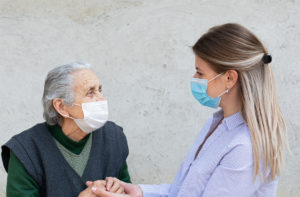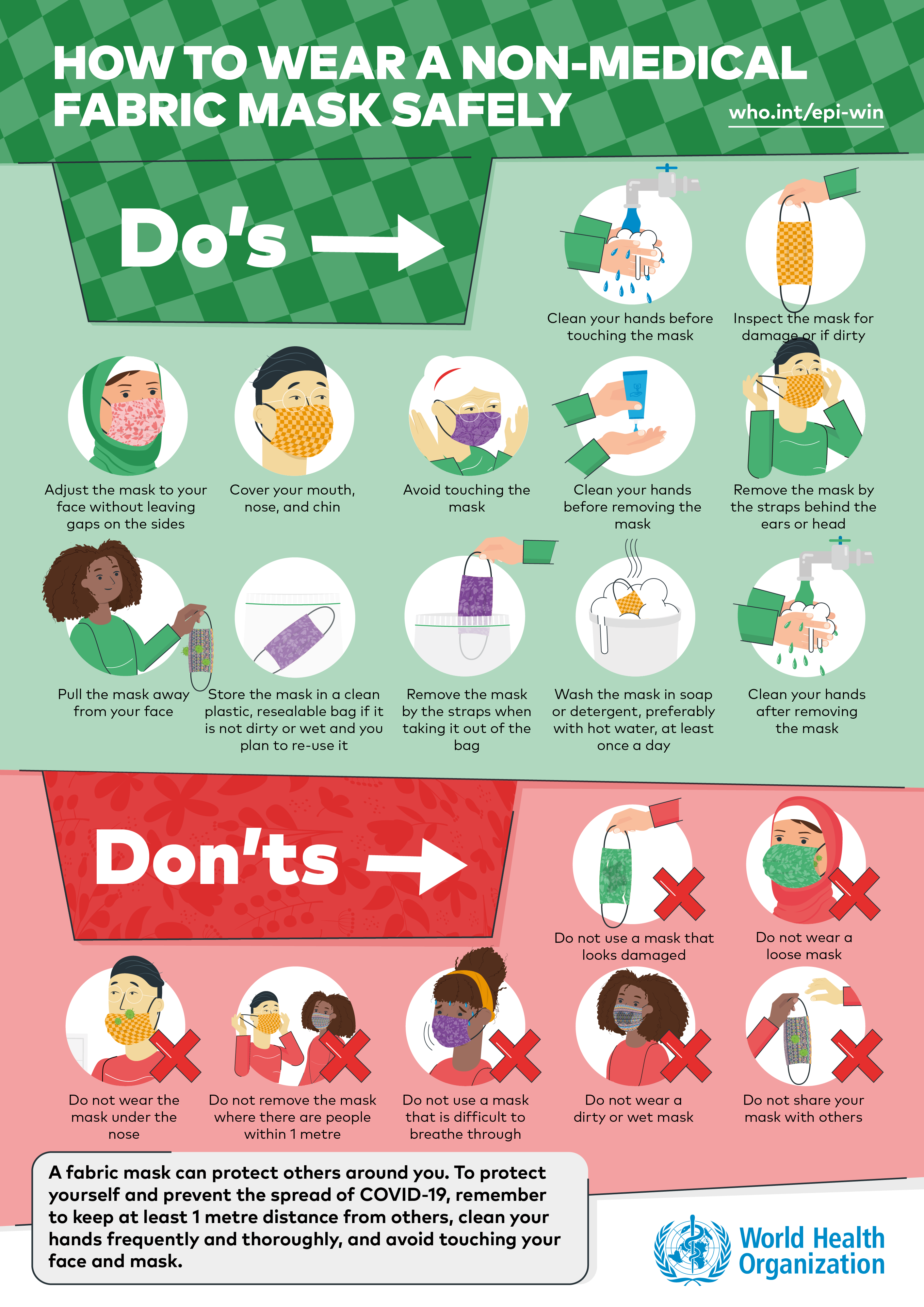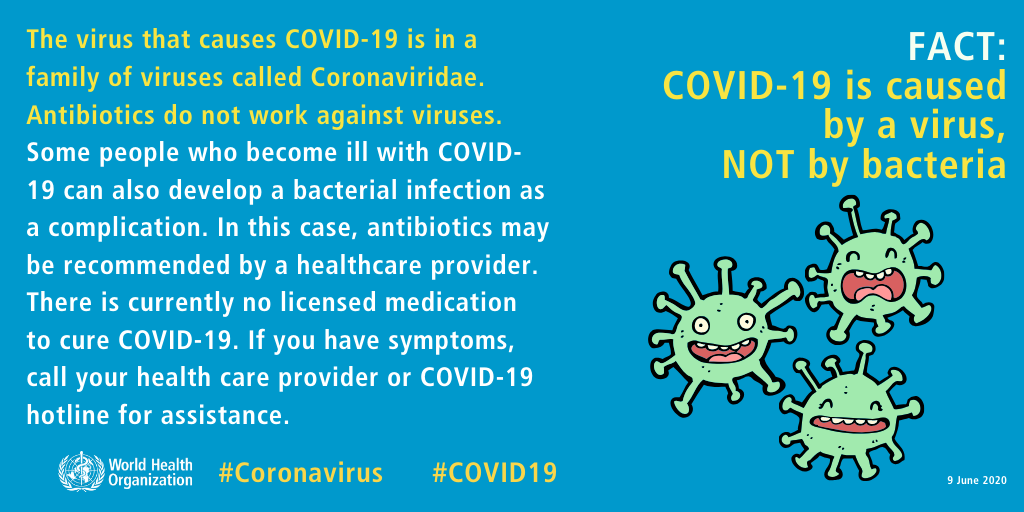Coronavirus Tips for Dementia Caregivers
 With the spread of COVID-19, caregivers of dementia patients face increasing and changing stressors. The normal routine of daily life is altered, adding new challenges throughout each day. With new limitations and challenges, neuropsychological function in dementia patients will likely be affected. Through all this, your main focus is still keeping your loved one healthy.
With the spread of COVID-19, caregivers of dementia patients face increasing and changing stressors. The normal routine of daily life is altered, adding new challenges throughout each day. With new limitations and challenges, neuropsychological function in dementia patients will likely be affected. Through all this, your main focus is still keeping your loved one healthy.
Lowering the chance of spreading the virus from the caregiver to the patient, whether that is you or an outside agency, is possible. Using technology and other strategies can even help you and your loved one stay emotionally well during this time of isolation and stress. Keeping calm and putting together a plan will help your family get through the COVID-19 pandemic.
Preventing the Spread of COVID-19
While dementia itself has not been related to higher risk of contracting COVID-19, other risk factors may need to be monitored throughout the caregiver-patient relationship to ensure the safety of dementia patients receiving care.
The best way to prevent contracting the virus is to avoid exposure to it. Suggested methods for include:
- Stay at least 6 feet away from other people
- Wear a face mask in public or around those you do not live with
- Wash hands frequently with soap and water for at least 20 seconds
- Cover coughs and sneezes, immediately washing hands or using hand sanitizer when soap and water are not available
- Refraining from touching your face
- Cleaning and disinfecting communally touched surfaces in your home
- Use curbside pickup for groceries and other necessary supplies
Preventing the Spread of COVID-19 When Using Outside Caregivers
You may have one dedicated outside caregivers or changing caregivers to provide essential services. Even if all preventative steps have been followed, bringing anyone who does not live with you into your home adds to the risk of exposure. Call your home healthcare agency to find out what steps they are requiring their caregivers to take to avoid contraction and spreading of COVID-19.
Steps to prevent caregivers from bringing COVID-19 into the home should include:
- Ask the caregiver to check his or her temperature before entering your home. Anyone with a fever, even low grade, should not be allowed to enter
- Ask the caregiver if he or she has been exposed to people who have tested positive for the virus (or are suspected to have contracted it). If so, do not allow him or her to care for your loved one
- Ask the caregiver to wear a mask at all times
- Review the CDC’s hand hygiene standards with him or her upon arrival if this is a new caregiver
Coping with COVID-19 in a Nursing or Long-Term Care Facility
If your loved one is living in a facility, call them to learn what they are doing to reduce the spread of the virus. Ensure they are working under CDC guidelines and find out how they are monitoring staff for the virus. Unfortunately, many facilities have been closed for visits, meaning that you may not be able to see your loved one in person for some time. This will vary by location and reopening phase.
Thankfully, technology is a helpful tool that should be utilized during times of quarantine. If your loved one doesn’t already have a smart device, consider purchasing one so that you may talk via video chat, text, email or even play online games together. Connect with staff members to ensure that your loved one’s device is being charged regularly and is in working condition. Some dementia patients may need help remembering how to turn the device on or charge it.
If getting new technology is not possible or not applicable for your loved one’s cognitive level, call the facility and identify a staff member there that can be your point of contact. Ask him or her to stay connected with you so that you can set up phone calls with your loved one on a regular basis. The staff member may even offer to help you video chat by means available at the care center.
Talking About the Pandemic With Dementia Patients
Any changes in routine cause stress and alter functioning in dementia patients. Explaining why these changes are necessary can be challenging. When talking about COVID-19 with dementia patients, consider what information is necessary to share and the emotional impact of that information. For example, leaving media coverage playing on television all day may cause emotional distress. Consider how you will explain the current situation in a way that your loved one can understand taking into account his or her cognitive level.
Refraining from explaining at all though may add extra stress. You may try something simple, such as, “Staying home right now is safer for all of us. Thankfully we will get to spend a lot of time together!”
For loved ones in nursing facilities, the staff may or may not be sharing information about the pandemic with residents. Call to find out what information has been shared and use that to determine how to talk about COVID-19 with that person.
COVID-19 Hygiene Tips for Dementia Patients
Explaining COVID-19 specific hygiene practices is necessary for dementia patients, many of whom may lack in personal hygiene practices without reminders or help. Posting signs in bathrooms and around the house explaining proper hand washing is a great reminder for those who need it, especially if children also live in the house.
Practicing your own hygiene and social distancing as necessary can also encourage your loved ones to pay attention to their own practices. Having a refresher lesson on proper hand washing techniques may be beneficial along with setting times throughout the day to wash hands on a schedule. This may be a good routine to put in place especially if outside caregivers are present in the home.
Planning for Gaps in Care
Forming a plan about who will step in if the primary caregiver(s) gets sick is essential, and also useful even not during a pandemic. Ask trusted friends and family to find out who is willing to help and in what capacity. You may need to rely on multiple caregivers. You should also call home healthcare services to determine if they will serve new patients if needed. Planning this ahead of time will save you from panic if something does happen to you or another primary caregiver’s health. Other planning tips include:
- Create a file that can be left for any caregiver
- Be sure to have your entire daily routine written down
- Include the primary care doctor’s phone number and any other important healthcare provider information, such as preferred local hospital
- List of all current medications, dosages and times of day to administer them
- Note any comfort items your loved one may have that can help in a stressful situation (and their location in the house). This list may also include things like favorite television shows and times
- Set up technology so you can keep in contact with your loved one. If he or she doesn’t already have a smart device, consider purchasing one so that you may talk via video chat, text, email or even play online games together. Being able to stay connected with you will ease stress for both of you
What to Do if The Person You are Caring For Gets Sick
Increased confusion is often the first symptom of any illness in a person with dementia. If you notice signs of rapidly increased confusion, call the patient’s primary medical provider. In some cases, initial treatment and guidelines may be accomplished without going to the emergency room or a doctor’s office. However, your provider may ask you to go to the emergency room. Preparation for this scenario is the best way to lower stress should it occur.
If your loved one is admitted to the hospital, the CDC allows for care providers of dementia patients to visit if they play an essential role in the patient’s physical or emotional health. This may mean that you are able to visit. If so, bring your own mask, wash your hands often, avoid touching your face and be sure to connect with staff when you are there.
Ask to have your phone number written on the whiteboard in the room for staff to call if something is needed when you are not there. Providing this information will also help you and your loved one stay connected if things change and you are no longer able to visit. You may use technology to stay in touch while separated. Instruct the staff on how to use any device should your loved one have trouble using it. He or she may need assistance charging the device as well.
Caregiver Self-Care
You are likely spending much more time at home and not able to participate in your favorite respite activities such as lunch with friends to catch up. Availability of day program hours and outings may be severely reduced or eliminated altogether, leaving you without breaks in caregiving. More time at home with your family may also cause tensions to rise. Your stress level is likely to be higher while trying to adapt to so many changes and worrying about the pandemic.
Although you can’t get rid of the pandemic, you can take steps to reduce the stress it brings. When you care for yourself, you are better able to care for others. Take time to do things that make you feel good when you can and limit extra stressors when possible, such as turning off the television and reading a book or taking a walk. Monitoring your stress level is a key practice to help you take the time you need when you need it and not when you are about to explode.
You may feel lonely and isolated. Remember that technology is going to be key to staying connected during this time. Carve out time for phone calls and video chats with your friends and family members to help you cope. Contact your loved one’s healthcare provider for support groups that can help you connect with others in your situation and provide additional resources.
The Montclair Memory Clinic is focused on helping patients and their families navigate the confusion and stress of living with dementia during the COVID-19 pandemic. We are here to support you and answer any questions you may have, provide resources as well as make appointments, via telehealth or in person. Please contact us today to see how we can help you through this trying time.


